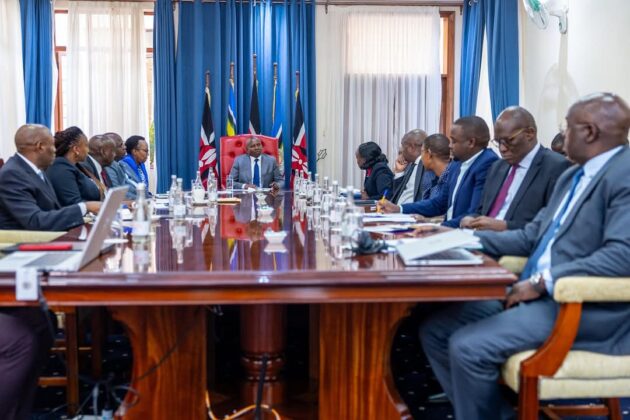
Kindiki says contingency measures in place to prevent disruptions of critical health services after US aid freeze » Capital News
NAIROBI,Kenya,Feb 17– Deputy President Kithure Kindiki has assured Kenyans that the government is working towards ensuring uninterrupted healthcare services following the recent funding policy changes by some development partners, including the United States.
In January upon assuming office, President Donald Trump temporarily suspended all US foreign assistance programs for 90 days, pending a policy review in a move that has disrupted critical health programs globally with Kenya being among those affected.
Speaking Monday during a high-level consultative forum on the implementation of Universal Health Coverage (UHC), Kindiki acknowledged that sudden shifts in foreign aid had impacted the health sector.
However, he emphasized that the Kenya Kwanza administration is taking necessary measures to prevent any disruptions
“I assure the nation that we remain focused to ensure any policy decision by our development partners does not affect delivery of healthcare services to the people of Kenya,” Kindiki stated.
“Our objective is to make sure no decision that is made by development partners affects the quality of healthcare to the people of Kenya.:
Kindiki reiterated the government’s dedication to achieving UHC, describing it as a key pillar of the Kenya Kwanza manifesto.
He acknowledged the complexity and financial demands of implementing universal healthcare, citing global challenges faced by other nations.
“Providing UHC is a complex, expensive, and politically risky enterprise because of the requirements that go with its delivery. However, this administration is committed, in partnership with county governments, to delivering UHC for the people of Kenya,” he said.
He lauded President William Ruto’s leadership in rolling out Taifa Care, the new UHC program, and recognized the contributions of the Ministry of Health, economic advisor Moses Kuria, and governors in facilitating the initiative’s progress.
Kindiki revealed that the government has registered 19.5 million Kenyans under the new health coverage plan.
However, he noted that while primary healthcare services are currently offered free of charge, a significant number of registered individuals have not been making contributions required for access to comprehensive healthcare services.
“We must find a way of making them contribute to enjoy the full health package available beyond primary care,” he said.
To address this Kindiki stated that the government is reviewing the Means Testing Tool, which assesses individuals’ ability to contribute to the UHC scheme.
The revised tool, expected to be finalized soon, will be more accurate and data-driven to ensure fair and efficient healthcare access.
The Deputy President also revealed that the upcoming Supplementary Budget will prioritize emergency and critical care treatment, including Intensive Care Unit (ICU) and High Dependency Unit (HDU) services, as well as the management of chronic diseases.
“This adjustment has come from feedback received over the last five months. It is aimed at ensuring full benefits for patients in critical conditions,” he explained.
While reaffirming the government’s commitment to making healthcare accessible to all, Kindiki stressed the need for sustainable funding mechanisms.
He emphasized that the administration is working on innovative solutions to ensure the long-term success of UHC, even in the face of reduced foreign aid.
“Our target is to make sure every citizen has medical cover. It is possible, and we are focused on making sure that happens in the shortest time possible,” he said.